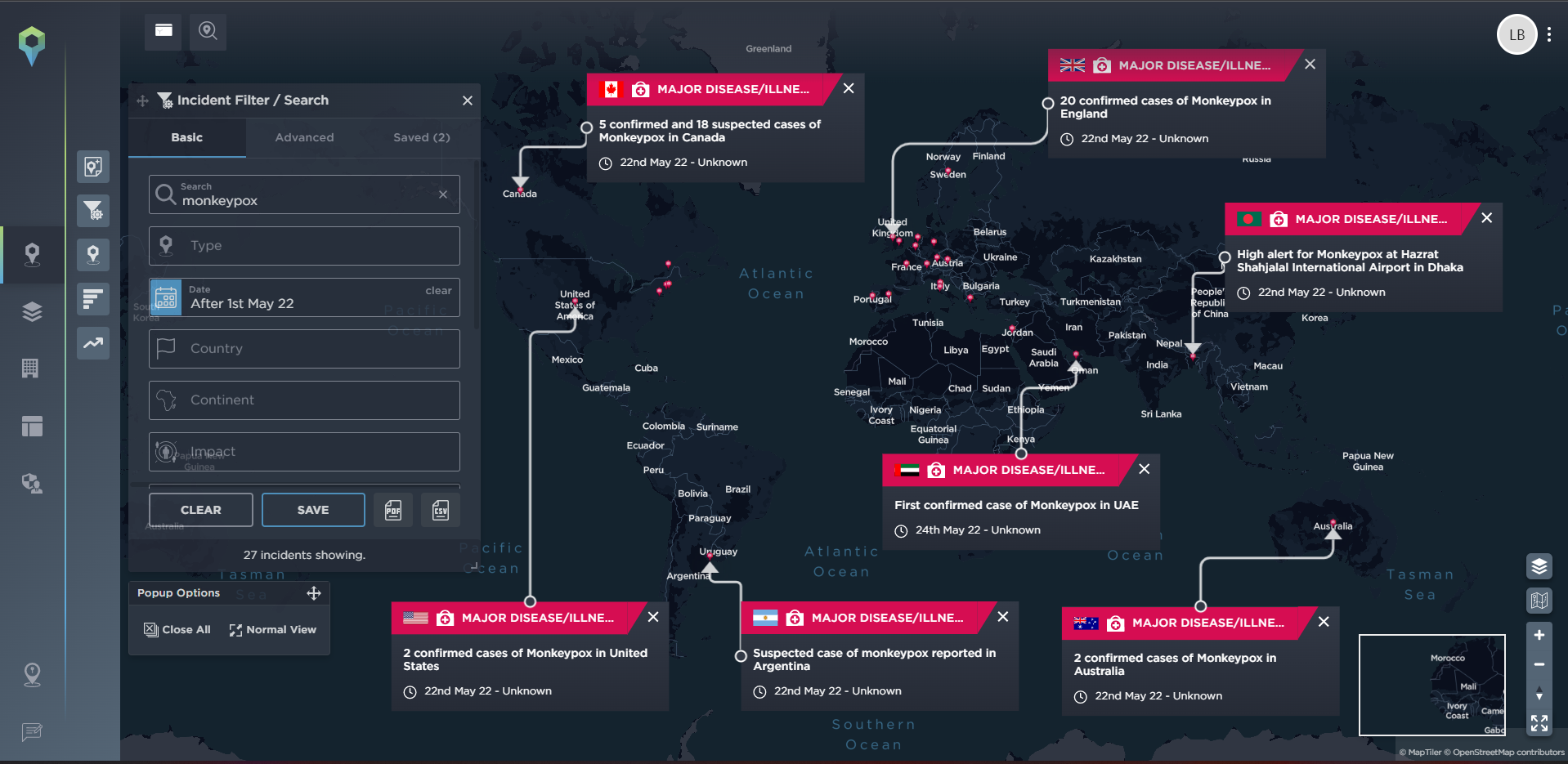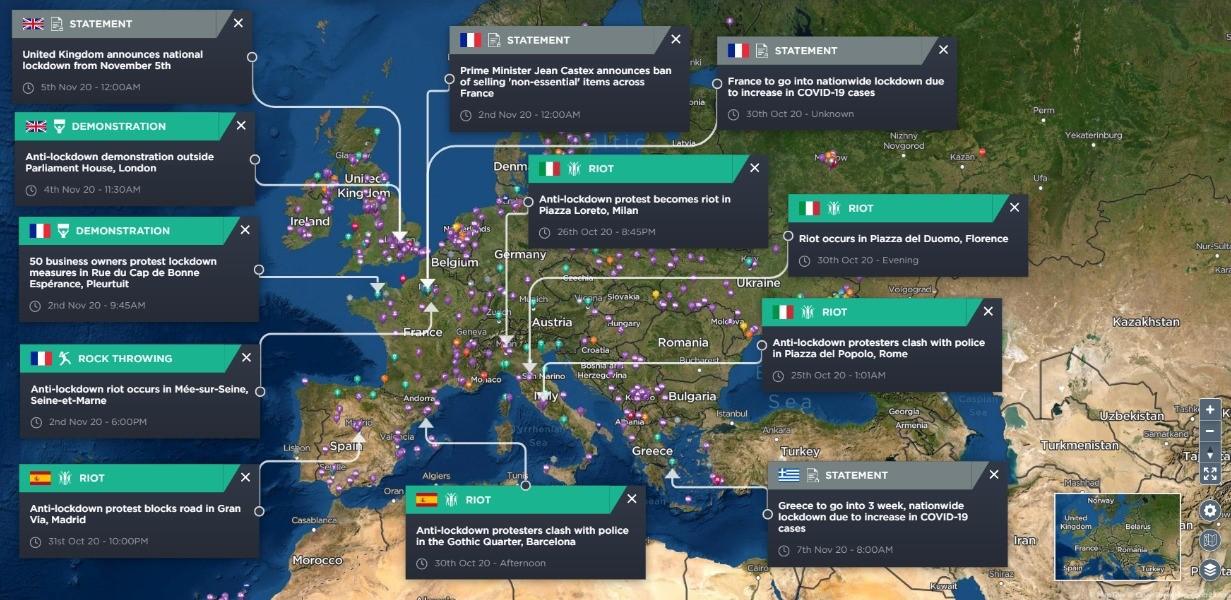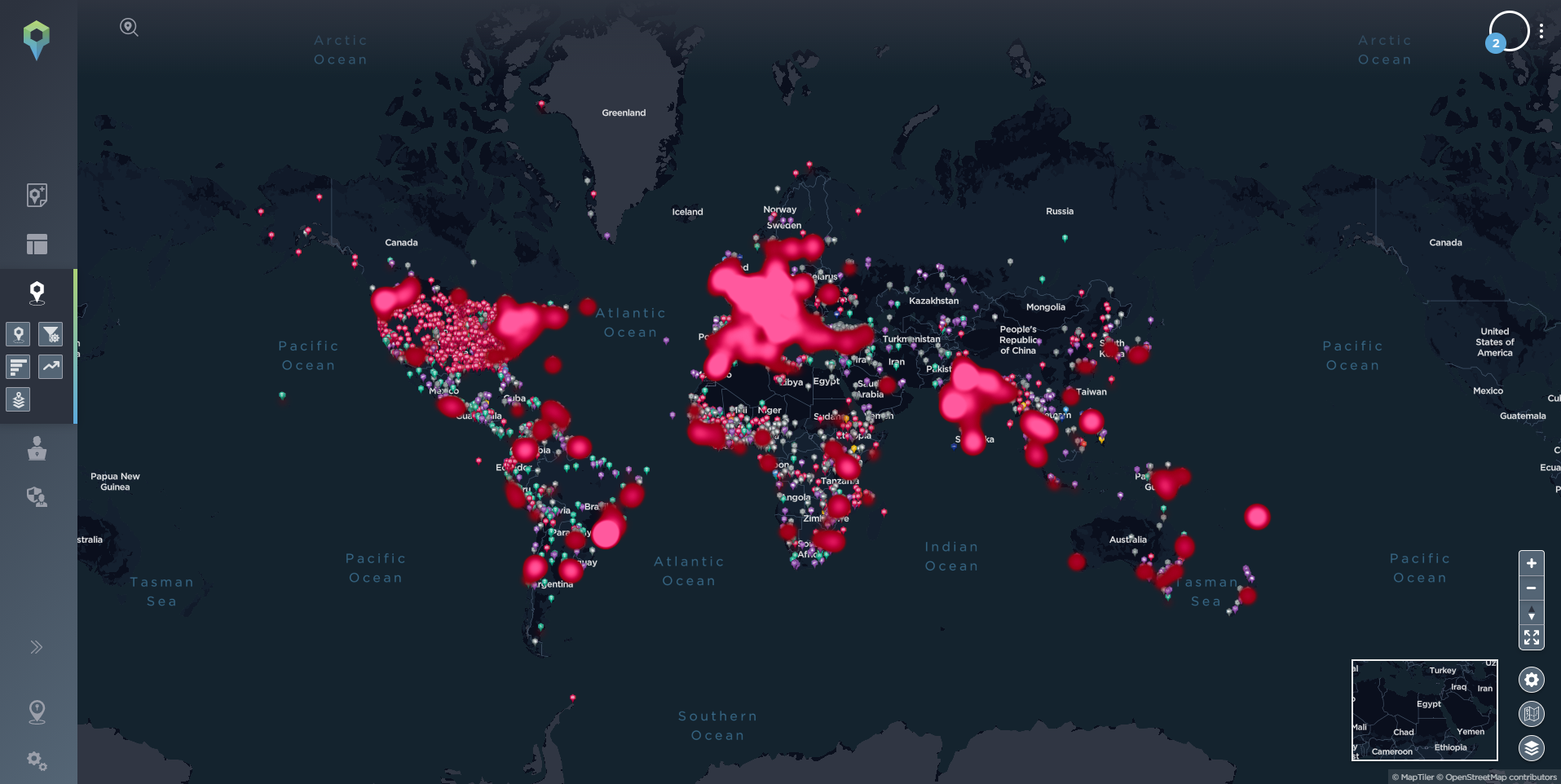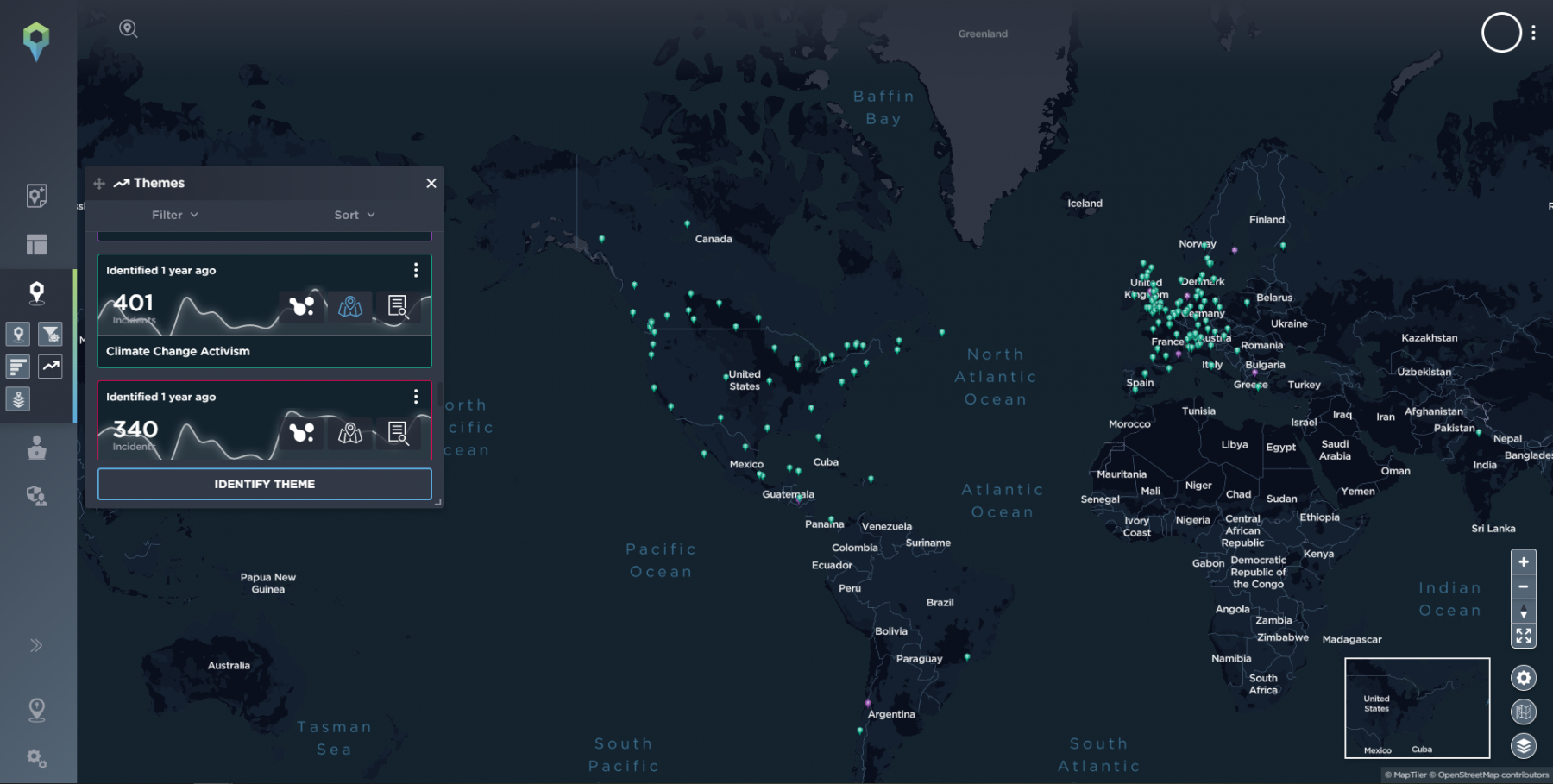What is monkeypox and should businesses be worried?
In May 2022, an outbreak of the monkeypox virus was detected in non-endemic countries. By the 25th May 2022 at 1200hrs BST, there were approximately 221 confirmed cases and 88 suspected cases worldwide; under 1% of the global population.
What is monkeypox?
Monkeypox is a zoonotic virus that originates from rainforests in Central and West Africa. There are two strains to date, the Central Africa (higher transmissibility), and the West Africa variant. Similar to smallpox, the symptoms are fever and/or elevated temperature, headache and body ache, swollen lymph node glands and a rash, including scabs, ulcerations and lesions.
What are the symptoms of monkeypox?
Observations from previous outbreaks show that the symptoms have an incubation period of approximately three weeks. Between 0-5 days those infected may start with mild symptoms such as a headache, fatigue and back pain. A rash, scabs or lesions may start to appear after 1-3 days of initial infection.
In some cases, symptoms may last between 2-4 weeks and could have long-lasting health impacts. Early studies suggest that the duration and intensity of the virus are dependent on past medical histories. However, there are no direct links to specific medical conditions. Since 1970, only 3-6% of cases have been fatal, with no deaths currently recorded in 2022.
How is monkeypox transmitted?
The virus is transmitted through close contact with viral droplets, such as by handling infected materials, bodily fluids, and/or saliva. Recent studies show the virus can also be transmitted through sexual intercourse.
Data collected over the past week also shows that males who have sexual intercourse with other males are at higher risk of contracting monkeypox. There is no pattern to suggest those infected have travelled to epidemic areas, and approximately 33 of the 221 infected have required hospital treatment and/or admission.
Based on the data collected in May 2022, a correlation shows that those infected have oral or genital rashes, with lower reports of fever. In isolated cases, unusual symptoms such as perianal pseudoverrucous papules and nodules (urine leakage) and swallowing difficulties have also been reported.

A small selection of confirmed and suspected monkeypox cases across the globe as of the 25th May 2022. [Image source: Intelligence Fusion]
Could monkeypox be the next pandemic?
An individual is unlikely to contract monkeypox without being directly exposed. The rapidness of transmission is considerably slower than similar viruses such as smallpox, making it less likely to cause an uncontrollable outbreak. The lifespan of the virus outside of a living host and/or inanimate objects is undisclosed.
Most recent cases show that those infected are in the same family or have had close contact relations. Statistics show that the infection rate is higher in males, with only three known confirmed female cases to date. The number of confirmed cases is increasing, but despite this incline, the mode of transmission makes a worldwide pandemic less likely.
How can the spread of monkeypox be reduced?
The smallpox vaccination is 85% effective against monkeypox and can offer protection against exposure to orthopoxviruses such as monkeypox. Studies are ongoing to increase vaccination efficiency, however, this vaccination is not available for public use, but is advised for healthcare workers. It is likely that if more cases are confirmed geographically, the vaccination may be considered for public use as a first-line preventative.
Protective measures such as reintroducing personal protective equipment (PPE), and increased hygiene precautions are also likely to reduce the risk of contracting monkeypox. Wearing PPE is the most effective, and is very likely to reduce contamination probability.
Travel restrictions and increased safety protocols are also likely to be revised in impacted countries to decrease international transmission. We are already seeing airports implementing additional antiviral procedures on arrival as a precautionary measure.
Current guidance advises those with symptoms or those who have been in close contact with someone who has a confirmed case, should seek medical attention, use PPE, sanitise and isolate for a designated time duration to reduce infecting others. Some countries have already imposed quarantine periods, some lasting upwards of three weeks.
What are the wider impacts of a monkeypox outbreak?
While the number of cases remains low globally, some countries have already taken measures to mitigate the spread and impact of the disease. Countries have already established guidelines for individuals found to have been infected, such as seeking medical attention and isolating to prevent further spread. However, some have already taken more significant steps. Belgium became the first country to impose a mandatory 21-day quarantine for patients with monkeypox.
At the time of reporting, business impacts from monkeypox are limited. However, some sectors, such as the medical sector may see some impacts if cases continue to increase. The impact has been seen at the Chelsea and Westminster Hospital where approximately 10 members of the sexual health clinic have been forced to self-isolate at home after coming into close contact with a confirmed case of monkeypox.
With the impacts of COVID-19 still being felt globally, including staff shortages due to self-isolation measures, any possibility of a wider outbreak of monkeypox could be detrimental, particularly to key workers.
It’s likely that disruption within other sectors could occur if employees become infected and unable to travel for work. However, businesses – particularly office-based roles – could be less impacted due to having become more resilient in the last two years. The increased ability to work from home and more stringent business continuity measures having been implemented could mitigate this risk, although, this may not be possible for selected industries and front-line workers.
Ongoing studies are working to increase understanding of the recent outbreak, and it’s likely that developments will allow greater control and a gradual decline in cases.
As this continues, Intelligence Fusion will be reporting any further confirmed or suspected cases of monkeypox across the world as well as monitoring efforts to reduce transmission, particularly if they have the potential to impact business operations, travel security and employee wellbeing.
If you’d like to better understand how we can support you and your team navigate the latest monkeypox outbreak, speak to a member of our team.



